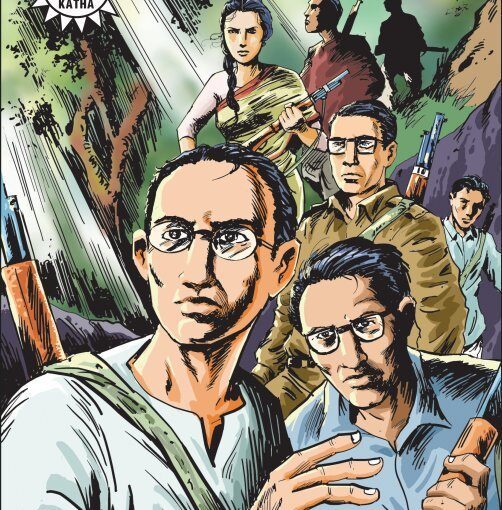Font size:
Print
Kalpana Dutta
Context:
On July 27, the birth anniversary of Kalpana Dutta (1913-1995), a pivotal figure in India’s revolutionary history, is observed. She was known for her participation in the Chittagong Armoury Raid and her relentless dedication to India’s freedom struggle.
Kalpana Dutta (1913-1995)
- Kalpana Dutta, an Indian revolutionary, was born on July 27, 1913, in Sripur village, Chittagong district (now Bangladesh).
- After completing high school in Chittagong, she attended Bethune College in Kolkata.
- Later joined the Chhatri Sangha, where she connected with revolutionaries such as Bina Das and Pritilata Waddedar.
- She took part in the Chittagong Armory Raid led by Surya Sen on April 18, 1930.
- In 1931, inspired by Rani Lakshmibai, she joined the Indian Republican Army established by Surya Sen.
- After the raid, she went underground, preparing explosives to free captured comrades along with this she also served as a courier agent for the revolutionaries.
- In 1931 only, she along with Pritilata Waddedar was tasked with attacking a European club in Chittagong. However, Kalpana was arrested a week before the raid while surveying the area.
- On May 19, 1933, she surrendered to allow others to escape but was later arrested. While imprisoned, she was visited by Gandhi ji and received letters from Rabindranath Tagore and C.F. Andrews.
- Despite being sentenced to life imprisonment, she was released in 1939. After her release, she dedicated herself to relief work during the 1943 Bengal famine.
- In 1940, she joined the Communist Party of India.
- Despite significant personal and financial sacrifices, women like Kalpana Dutta chose the challenging path for the nation’s sake.

Chittagong Armoury Raid (April 1930)
- Surya Sen participated in the Non-Cooperation Movement and worked as the secretary of the Chittagong District Congress Committee.
- He was an admirer of Tagore and Qazi Nazrul Islam, he often said, “Humanism is a special virtue of a revolutionary.”
- He organised an armed rebellion with Anant Singh, Ganesh Ghosh, and Lokenath Baul to challenge British rule.
- In April 1930, under the banner of the Indian Republican Army—Chittagong Branch, 65 activists raided two main armouries in Chittagong, destroyed communication lines, and disrupted the railway link to Bengal.
- The raid was successful; Sen hoisted the national flag and proclaimed a provisional revolutionary government.
- Sen issued a manifesto in the name of the Indian Republican Army and called on the Indians to revolt against British rule.
- Although Sen was arrested in 1933 and hanged in 1934, the raid inspired revolutionary-minded youth and increased recruitment into revolutionary groups.
Subscribe to our Youtube Channel for more Valuable Content – TheStudyias
Download the App to Subscribe to our Courses – Thestudyias
The Source’s Authority and Ownership of the Article is Claimed By THE STUDY IAS BY MANIKANT SINGH





